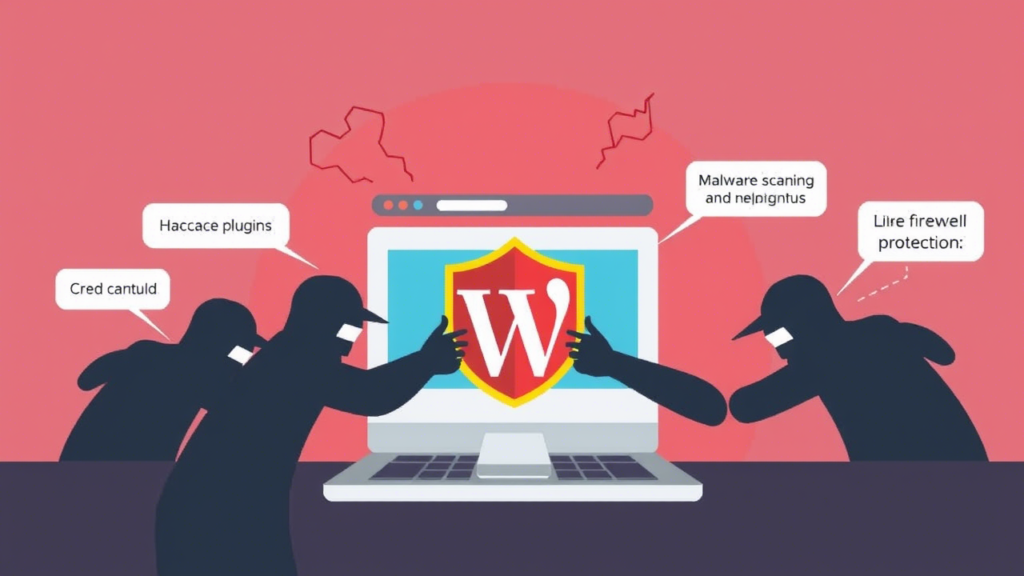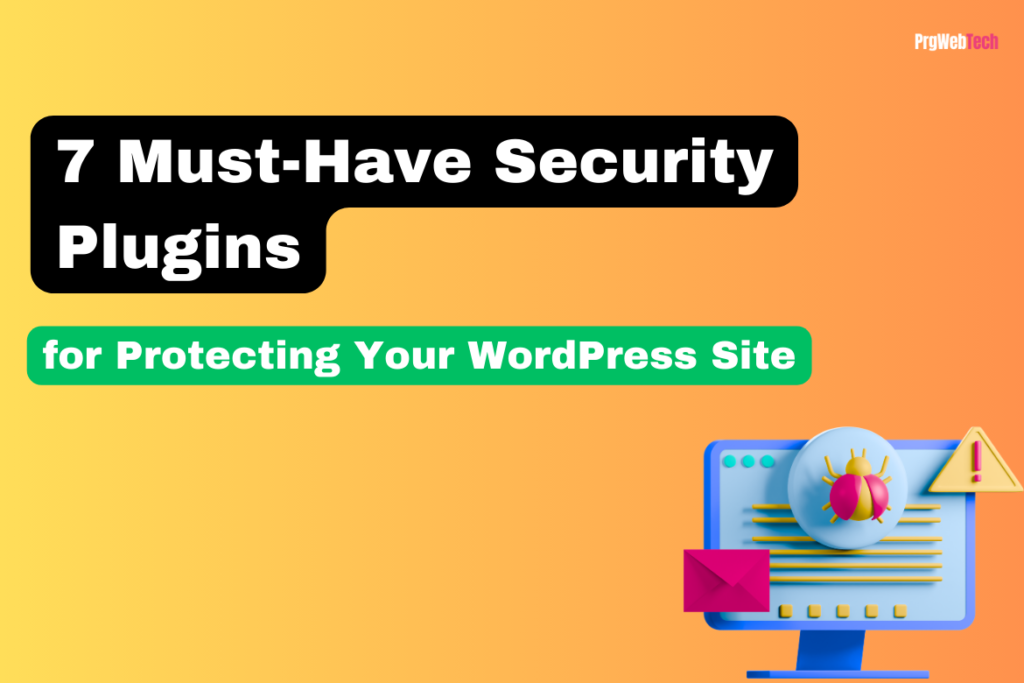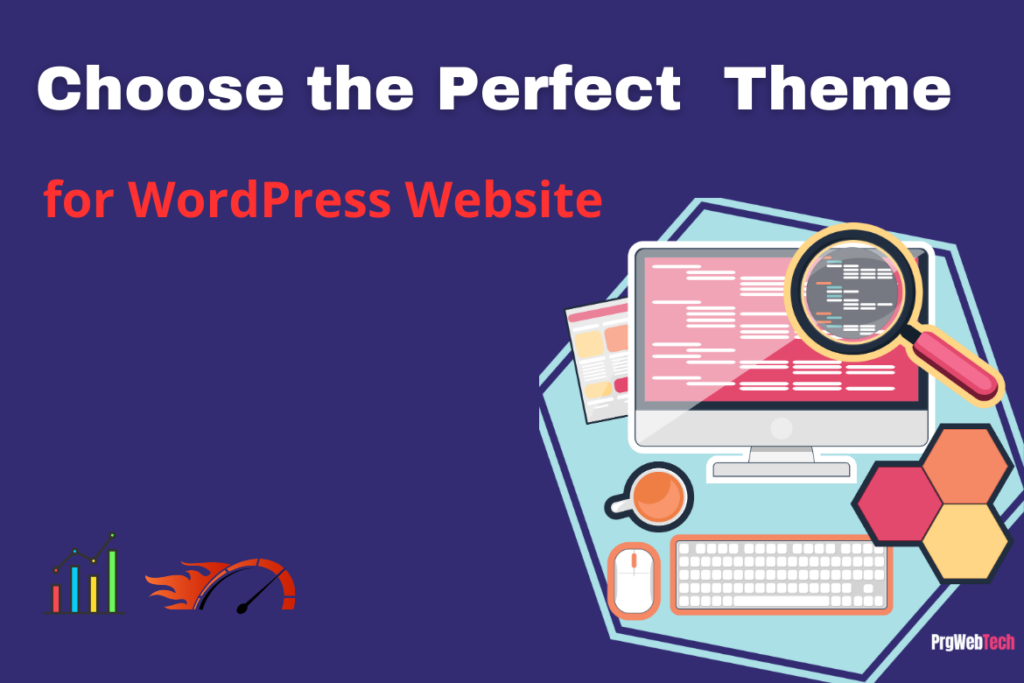Did you know that WordPress powers over 43% of all websites on the internet ? That’s a huge number! But with great popularity comes great responsibility. Unfortunately, hackers also know how popular WordPress is, and they often target these sites. To keep your website safe from cyberattacks, you need to take steps to protect it. One of the easiest ways to do this is by using security plugins.
In this article, we’ll talk about 7 must-have security plugins that can help protect your WordPress site. I’ll explain what each plugin does, its features, and even share some pros and cons. Plus, there’s a handy table at the end to summarize everything!
Why Do You Need Security Plugins?

Imagine your WordPress website as a house. Just like you wouldn’t leave your front door unlocked or your windows wide open, you shouldn’t leave your website unprotected either. The internet is full of “bad guys” — hackers, spammers, and cybercriminals who are constantly looking for weak websites to attack. Without proper security measures in place, your site could become an easy target.
Here’s why security plugins are so important:
1. Preventing Hacking Attempts
Hackers love targeting WordPress sites because they’re so popular. They use automated tools to scan thousands of websites every day, looking for vulnerabilities. Once they find a weak spot (like outdated software or weak passwords), they can break in and wreak havoc. Security plugins act as the first line of defense by blocking suspicious activity and locking out unauthorized users before they can cause damage.
2. Stopping Malware and Viruses
Malware is malicious software designed to harm your website or steal sensitive information. For example, hackers might inject harmful code into your site that redirects visitors to phishing pages or displays unwanted ads. A good security plugin will scan your site regularly for malware, detect infected files, and clean them up automatically. This keeps both your site and your visitors safe.
3. Protecting Against Brute-Force Attacks
Brute-force attacks happen when hackers try to guess your login credentials by repeatedly entering different username and password combinations. It’s like someone trying every key on a keychain until they unlock your door. Security plugins can block these attempts by limiting the number of login tries or hiding your login page altogether. Some even force users to create strong passwords, making it harder for attackers to succeed.
4. Securing Sensitive Data
If you run an e-commerce site or collect personal information from visitors (like email addresses or payment details), you have a responsibility to protect that data. Security plugins encrypt sensitive information, monitor file changes, and alert you if anything unusual happens. This helps prevent data breaches that could ruin your reputation and cost you money.
5. Improving Site Performance
Believe it or not, some security plugins also help improve your site’s performance! For example, they can block spam comments, which clutter your database and slow down your site. Others include caching features that make your site load faster. A secure site is often a faster and more reliable one too.
6. Providing Peace of Mind
Running a website comes with a lot of responsibilities. Knowing that your site is protected 24/7 allows you to focus on creating great content or growing your business without constantly worrying about potential threats. Many security plugins send instant notifications if something suspicious happens, so you’re always in the loop.
7. Helping You Recover After an Attack
Even with the best precautions, no site is completely immune to attacks. If the worst happens and your site gets hacked, security plugins can help you recover quickly. Features like automatic backups let you restore your site to its previous state, while cleanup tools remove malicious code. This minimizes downtime and ensures your visitors don’t lose trust in your brand.
8. Meeting Legal Requirements
Depending on where you live or operate your business, there may be laws requiring you to take steps to protect user data. For example, the General Data Protection Regulation (GDPR) in Europe mandates strict rules for handling personal information. Using a security plugin shows that you’re taking proactive steps to comply with such regulations, avoiding hefty fines and legal trouble.
9. Building Trust with Visitors
When people visit your website, they expect it to be safe. If they see warning messages like “This site may be unsafe” or encounter pop-ups caused by malware, they’ll likely leave immediately—and never come back. A secure website builds trust and credibility, encouraging visitors to stay longer, explore your content, and potentially become customers.
10. Saving Time and Money
Fixing a hacked website can be expensive and time-consuming. You might need to hire a professional developer to clean up the mess, or worse, rebuild your entire site from scratch. Investing in a good security plugin upfront saves you from these headaches and expenses down the road. Think of it as insurance for your website!
In short, security plugins are like superheroes for your WordPress site. They protect against threats, keep your data safe, and ensure your site runs smoothly. Whether you’re a blogger, small business owner, or entrepreneur, adding a security plugin to your toolkit is one of the smartest decisions you can make. After all, prevention is always better than cure—especially when it comes to cybersecurity!
Read this also >> How to Secure Your WordPress Site from Hackers
Top 7 Security Plugins for WordPress
When it comes to securing your WordPress site, choosing the right plugin can make all the difference. Below, we’ll dive deep into the features, strengths, and limitations of seven of the most popular security plugins.
Each plugin has its own unique approach to keeping your site safe, so let’s explore them in detail.
1. Wordfence Security
Wordfence is one of the most widely used security plugins in the WordPress ecosystem, and for good reason. It offers a comprehensive suite of tools designed to protect your site from various threats. At its core, Wordfence provides a robust web application firewall (WAF) that filters incoming traffic and blocks malicious requests before they reach your site. This firewall is particularly effective against brute-force attacks, SQL injections, and cross-site scripting (XSS) attempts.
One of Wordfence’s standout features is its real-time threat intelligence feed , which constantly updates with information about emerging threats. This ensures that your site is protected against the latest hacking techniques. Additionally, Wordfence performs thorough malware scans , checking your files and database for any signs of infection. If malware is detected, the plugin provides detailed reports and guidance on how to remove it.
While the free version of Wordfence is packed with useful features, the premium version takes things a step further by offering additional layers of protection, such as country blocking and advanced scan scheduling. However, some users find the premium pricing a bit steep, especially for smaller websites. Moreover, the sheer number of settings and options can be overwhelming for beginners who may not need all the advanced features.
Wordfence Security Features
- Scans your site for malware and vulnerabilities.
- Blocks suspicious IP addresses automatically.
- Provides a firewall to stop attacks before they happen.
2. Sucuri Security
Sucuri Security is another top-tier option, known for its focus on both prevention and recovery. Unlike some plugins that only offer basic protection, Sucuri goes a step further by providing tools to clean up your site if it gets hacked. This makes it an excellent choice for users who want peace of mind knowing they have a safety net in case the worst happens.
The plugin includes a website monitoring system that keeps an eye on your site’s integrity. If any unauthorized changes are made to your files or if suspicious activity is detected, Sucuri will alert you immediately. For sites that do get compromised, Sucuri’s post-hack cleanup service is invaluable. Their team of experts will work to remove malware, restore your site, and patch vulnerabilities to prevent future attacks.
One of Sucuri’s key selling points is its website application firewall (WAF) , which is available in the premium version. This cloud-based firewall filters out malicious traffic before it even reaches your server, significantly reducing the risk of attacks. While the free version of Sucuri is solid, many of its most powerful features—like the WAF and priority support—are locked behind a paywall. For users on a tight budget, this might be a downside.
Sucuri Security Features
- Monitors your site for hacking attempts.
- Cleans up infected files if your site gets hacked.
- Offers a website application firewall (WAF).
3. iThemes Security or Solid Security
iThemes Security is a versatile plugin that focuses on making security accessible to everyone, regardless of their technical expertise. The plugin offers over 30 different ways to harden your site’s security, ranging from simple measures like enforcing strong passwords to more advanced techniques like hiding your login page.
One of iThemes’ most notable features is its ability to track user activity . This allows you to monitor who is logging into your site and when, helping you spot any unusual behavior. The plugin also includes a two-factor authentication (2FA) feature, which adds an extra layer of protection by requiring users to verify their identity through a second method (like a text message or app-generated code).
For those looking to take their security to the next level, iThemes offers a Pro version with additional features like database backups, scheduled malware scans, and file change detection. While the Pro version is reasonably priced, some users may find the sheer number of settings and configurations daunting. Beginners might need to spend some time learning how to use the plugin effectively.
iThemes Security Features
- Hides your login page to confuse hackers.
- Forces strong passwords for users.
- Sends email alerts when someone tries to log in.
4. All In One WP Security & Firewall
As the name suggests, All In One WP Security & Firewall aims to provide a complete security solution in one package. What sets this plugin apart is its simplicity and affordability—it’s entirely free, with no hidden costs or upsells. Despite being free, it doesn’t skimp on features.
One of the plugin’s most user-friendly aspects is its security strength meter , which rates your site’s current security level and provides actionable recommendations for improvement. For example, it might suggest enabling login lockdowns or changing your database prefix to something less predictable. These small tweaks can make a big difference in protecting your site.
All In One WP Security also includes a firewall that blocks common attack vectors, such as brute-force login attempts and SQL injections. Additionally, it offers database backup functionality , allowing you to save copies of your site’s data in case of emergencies. However, while the plugin covers the basics well, it lacks some of the more advanced features found in premium plugins like Wordfence or Sucuri. Updates are also less frequent, which could leave your site vulnerable to newer threats.
All In One WP Security & Firewall Features
- Rates your site’s security level and suggests improvements.
- Blocks brute-force login attempts.
- Backs up your database regularly.
5. Jetpack Security
Jetpack is best known for its multipurpose capabilities, combining security, performance optimization, and marketing tools into a single plugin. Its security features are particularly appealing to users who want an all-in-one solution without having to install multiple plugins.
Jetpack Security excels at spam protection , using advanced algorithms to filter out unwanted comments and form submissions. It also includes a brute-force attack protection feature, which limits the number of login attempts from a single IP address. For added peace of mind, Jetpack offers automatic backups and site restoration , ensuring that you can quickly recover your site in the event of a crash or hack.
While Jetpack’s integration with other Jetpack features (like analytics and social sharing) is convenient, some users feel that the plugin tries to do too much. The interface can feel bloated, and certain features require a WordPress.com account, which might not appeal to everyone. Additionally, the pricing model is subscription-based, which could add up over time for larger sites.
Jetpack Security Features
- Protects against spam comments and brute-force attacks.
- Includes backup and restore options.
- Speed optimization tools to improve performance.
6. MalCare
MalCare specializes in malware detection and removal , making it an ideal choice for users who prioritize cleanliness and integrity. The plugin uses a unique scanning algorithm that checks your site for malware in just a few seconds—a significant advantage over slower scanners. If malware is found, MalCare provides a one-click cleanup feature that removes infected files and restores your site to its original state.
Another standout feature is MalCare’s ability to monitor outdated plugins and themes . Outdated software is one of the leading causes of website vulnerabilities, and MalCare helps you stay on top of updates to minimize risks. The plugin also includes a firewall that blocks malicious traffic, though this feature is only available in the premium version.
While MalCare’s free version is functional, many of its most valuable features—such as the firewall and priority support—are reserved for paying customers. Some users may also find the pricing structure less flexible compared to competitors like Wordfence or Sucuri.
Is MalCare worth it? Absolutely—if you value speed, simplicity, and reliable malware protection. But if you’re looking for a broader range of security features, you might need to supplement it with another plugin.
MalCare Features
- Automatic malware scanning and removal.
- Detects outdated plugins and themes.
- One-click cleanup for infected sites.
6. Shield Security
Shield Security takes a slightly different approach by focusing on automation and ease of use. Designed for non-technical users, the plugin handles many security tasks automatically, minimizing the need for manual intervention. For instance, it tracks failed login attempts and temporarily bans suspicious IP addresses, preventing brute-force attacks without requiring any input from you.
One of Shield Security’s key strengths is its file monitoring feature, which alerts you whenever changes are made to critical files. This helps you catch unauthorized modifications early, reducing the risk of long-term damage. The plugin also integrates seamlessly with Google reCAPTCHA , adding an extra layer of protection against bots and automated scripts.
While Shield Security’s free version is surprisingly robust, it does lack some of the bells and whistles offered by premium plugins. For example, there’s no built-in malware scanner or firewall, which might be deal-breakers for some users. Additionally, the interface isn’t as polished as others, and advanced users may find the customization options somewhat limited.
That said, Shield Security is a solid choice for small to medium-sized websites that need reliable protection without breaking the bank. Its lightweight design ensures minimal impact on site performance, making it a great option for resource-constrained environments.
Shield Features
- Tracks failed login attempts and blocks suspicious activity.
- Prevents unauthorized file changes.
- Integrates with Google reCAPTCHA to stop bots.
Comparison : Best Security Plugins for WordPress
| Plugin Name | Free Version Available? | Key Features | Pros | Cons |
|---|---|---|---|---|
| Wordfence Security | Yes | Malware scans, firewall, real-time alerts | User-friendly, comprehensive | Premium version pricey |
| Sucuri Security | Yes | Monitoring, cleanup, WAF | Excellent support, lightweight | Fewer free features |
| iThemes Security | Yes | Login protection, strong passwords, alerts | Customizable, beginner-friendly | Confusing for non-techies |
| All In One WP Security | Yes | Security rating, brute-force protection, backups | Free, simple | Less frequent updates |
| Jetpack Security | Yes | Spam protection, backups, performance tools | Multi-functional, affordable | Can feel bloated |
| MalCare | Yes | Malware removal, tracking outdated software | Easy to use, fast scans | Limited free features |
| Shield Security | Yes | File monitoring, bot prevention, login tracking | Free, lightweight | Interface needs improvement |
Final Thoughts
Keeping your WordPress site secure is essential, whether you’re running a blog, an online store, or a business website. These 7 security plugins offer different features to suit various needs and budgets. If you’re just starting out, try free versions first to see which one works best for you. For more advanced protection, investing in a premium plan might be worth it.
Remember, no plugin can guarantee 100% safety, but combining good security practices (like using strong passwords and updating your site regularly) with these tools will go a long way in keeping your site safe.
So, which plugin are you going to try first? Let us know in the comments below! 😊



